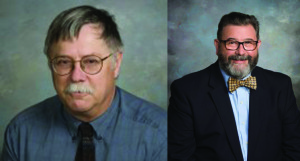Associate Professor Steven E. Harris (HISA) recently co-edited with Daria Bocharnikova (University of Leuven / Center for the Fine Arts BOZAR) a special issue of the Journal of Urban History, volume 44, no. 1 (2018).
The special issue, “Second World Urbanity: New Histories of the Socialist City,” features five research articles by scholars who participated in one of three conferences co-organized by Harris and Bocharnikova as the conveners of the Second World Urbanity project (http://www.secondworldurbanity.org).
Launched in 2012, this interdisciplinary project explores the architecture, urban planning and everyday life experiences of socialist cities past and present. The special issue of the Journal of Urban History is the first publication to come out of the Second World Urbanity project.
Bocharnikova and Harris’s introductory essay, “Second World Urbanity: Infrastructures of Utopia and Really Existing Socialism,” is also included in the special issue.
